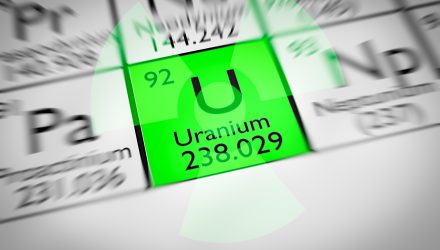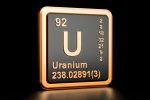More capital investment in uranium projects is expected to rise as sentiment improves globally. As a byproduct of increased demand for uranium, this should spill over into strength for ancillary services such as mining.
“The nuclear energy industry is experiencing a worldwide resurgence after years of underinvestment,” wrote Sprott ETF product management director Steven Schoffstall. “Nuclear power offers an efficient, reliable, safe and environmentally friendly energy source that could be the answer for countries striving to achieve net-zero carbon emission targets and enhance energy security. As more nations adopt pro-nuclear stances, we believe that uranium and nuclear power will become essential in addressing the rising global electricity needs as energy consumption grows.”
Schoffstall noted that global sentiment has been rising on a grand scale within the last few years. He said it is “reigniting the industry after the ‘lost decade’ that followed the 2011 Fukushima Daiichi power plant disaster.” The demand for alternative energy sources is causing nations to look to this metal as a viable alternative. This is evident in the increasing number of nuclear power plants.
“Currently, 434 nuclear power plants operate worldwide, with 59 under construction and 111 more planned (see Figure 1),” Schoffstall said, noting that 2023 has seen a profound rise in nuclear power plant restarts, life extensions and new builds. “Of these, China is constructing 23 new nuclear plants, augmenting its existing fleet of 55.”
Figure 1. Nuclear Reactors in the World Today

Get Uranium Mining Exposure
Improving sentiment on the metal should create opportunities for mining stocks. As opposed to looking for single-stock opportunities, another option is to get broad-based exposure via funds like the Sprott Uranium Miners ETF (URNM).
With its 0.83% expense ratio, URNM tracks the North Shore Global Uranium Mining Index. This index follows the performance of companies that devote at least 50% of their assets to the industry. This may include mining, exploration, development, and production of uranium, or holding physical uranium, owning royalties. It could also include engaging in other, nonmining activities that support the mining industry.
URNM offers exposure to various countries with companies involved in the metal’s mining. Canadian companies comprise over 50% of the fund. It also includes holdings in countries such as Hong Kong, the United Kingdom, Kazakhstan, and Australia.
“This growing reliance on nuclear energy is increasing demand for uranium, and we believe this provides attractive investment opportunities for uranium miners,” Schoffstall added. “After decades of overproducing, uranium miners can no longer meet the demand from existing nuclear reactors,15 and the uranium production/demand imbalance may widen well into the next decade.”
For more news, information, and analysis, visit the Gold/Silver/Critical Minerals Channel.








